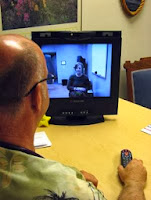Late-Term Abortion to Save a Mother’s Life: Two Doctors’ Perspectives
[Today’s post by Sarah Terzo is part of our paid blogging program. Sarah is a pro-life atheist, a frequent contributor to Live Action News, and the force behind ClinicQuotes.com.]
Pro-choice activists sometimes claim that late-term abortions need to be legal in order to protect women’s lives. These abortion activists know that many people shudder at the thought of killing a fully formed baby who could survive outside of his or her mother’s womb. They know that the simple “woman’s body, woman’s choice” slogan is not enough to convince the public that aborting full-term babies should be legal. In order to justify these abortions, pro-choicers sometimes say that if late-term abortions were banned, women’s lives would be at risk; in other words, women have late-term abortions in order to save their own lives.
Is this true? Common sense seems to indicate that it isn’t. A third trimester abortion is performed by injecting poison (usually dioxin) into the baby, then inducing labor. A woman essentially “gives birth” to a dead baby.
In both a third trimester abortion and a traditional live birth, the woman has to go through labor. The only difference is that in an abortion, the baby is injected with poison, killing him or her. This is done for no other reason than to prevent a live birth. It seems to be common sense that injecting deadly poison into a woman’s body would carry some risk. It is hard to believe that it is safer to inject poison and induce labor rather than to simply induce labor without the injection.
Way back in 1972, when abortion’s legality was still being debated, the medical director of the Pittsburgh Planned Parenthood, Dr. Rose R. Middleman, was quoted as saying:
“It’s extremely rare, if nonexistent, for a physician to have a medical reason to abort a woman in the 7th or 8th month.”(1)
Middleman’s statement is very revealing. It comes from a pro-choice Planned Parenthood administrator, who had every reason to stick to the pro-choice talking points. In 1972, Planned Parenthood was just as pro-abortion as it is today. This doctor’s admission probably did not sit well with those who were advocating for late-term abortion, because it revealed the truth.
If in 1972, late-term abortions were not needed to save the lives of women, it is highly probable that they are even less necessary today. There are been many medical advances in the past 40 years.
A more contemporary quote comes from a practicing abortionist, Dr. Don Sloan. When Sloan wrote his book “Choice: a Doctor’s Experience with the Abortion Dilemma” in 2002, he had already performed over 20,000 abortions. He said:
“If a woman with a serious illness- heart disease, say, or diabetes- gets pregnant, the abortion procedure may be as dangerous for her as going through pregnancy … with diseases like lupus, multiple sclerosis, even breast cancer, the chance that pregnancy will make the disease worse is no greater that the chance that the disease will either stay the same or improve. And medical technology has advanced to a point where even women with diabetes and kidney disease can be seen through a pregnancy safely by a doctor who knows what he’s doing. We’ve come a long way since my mother’s time….The idea of abortion to save the mothers’ life is something that people cling to because it sounds noble and pure- but medically speaking, it probably doesn’t exist. It’s a real stretch of our thinking.”(2)
Dr. Sloan is of the opinion that abortion is never necessary to save a woman’s life at any time in pregnancy. He believes that “life of the mother” argument is a smoke screen, a useful argument, but not based on fact. It is true that in some cases, pregnancy can complicate illness, but even this abortion provider admits that in most cases, a competent doctor can see a woman through even the most difficult pregnancy.
When pro-lifers make the claim that abortion is seldom necessary to save a woman’s life, especially in the last trimester, people might be inclined to doubt them. When pro-choice doctors say the same thing, it is not as easy to dismiss.
1. “Doctor Refutes Abortion Claim” Reading Eagle June 14, 1972
2. Don Sloan, M.D. and Paula Hartz. Choice: A Doctor’s Experience with the Abortion Dilemma. New York: International Publishers 2002 P 45-46


You are right Jesicca and the wonderful thing is that in the two-patient model, those conditions are treated in exactly the same way that they would be in a non-pregnant patient. There is a world of difference between directly targeting the life of a preborn baby, and (for example) aggressive chemotherapy which may result in foetal death.
If no doctor worth his medical license would say it, why did this abortion doctor with a medical license say it? What do you know that this experienced medical professional doesn't?
How exactly does poisoning a fetus before inducing labor cure preeclampsia (as one example you gave) any better than simple labor induction would? Does the delivery of a dead baby make the mother's blood pressure go down faster?
Ignore an Abortion Doctor that did over 20,000 abortions?